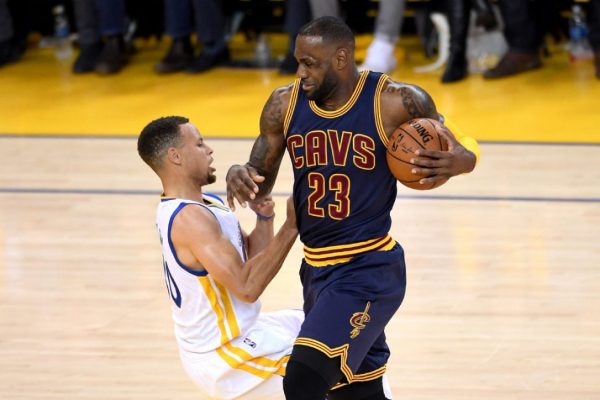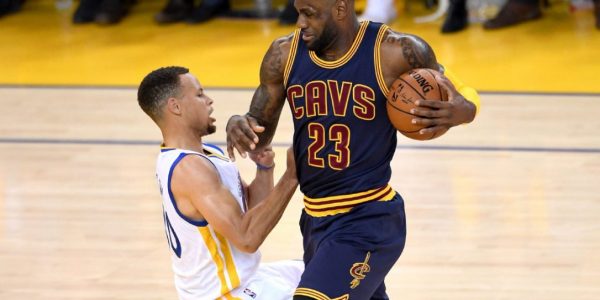
As we get closer and closer to game 5 and maybe the end of the 2016 NBA Finals, it’s interesting to see the narratives shifting from game to game, especially the ones involving Stephen Curry and LeBron James.
Through the first three games of the series, Curry averaged only 16 points per game. It looked like another finals in which Curry plays well, OK, but not doing anything special. Not for more than one game. Draymond Green and Andre Iguodala played a bigger part in the Warriors being up 2-1. Maybe it’s a bit unfair, but when you’re lighting up the record books with three pointers, defining a new era of NBA basketball in terms of how teams play offense and defend, not to mention back-to-back regular season MVPs, expectations are high. He can ask LeBron about that, and the pressure that comes with it.
And then came game 4. Curry scored 38 points. It’s hard to call that kind of performance quiet, but it wasn’t Curry taking on an entire team. He hardly forced anything or dribbled his way to those amazing points. A lot of catch and shoot, a lot of freeing up out of pick and rolls, with stepbacks and the full arsenal that keeps growing with time. At this point in time, if the Warriors win and there has to be a Finals MVP, Curry is going to be it. Maybe not a decisive, home run kind of MVP, but it changes the talk about him, again.
Personally, I don’t feel Curry is the best player in the NBA, or among the greatest of all time, the truly elite. I don’t think he thrives in every NBA era. Put him in the hand-check, more physical NBA, and suddenly it’s a lot more difficult for him to be this good, not to mention he’s been special for only about a year and a half. It might be easy dissing LeBron James for a number of reasons, but he’s been one of the three best basketball players in the world for about a decade. Curry has time to change that.
After game 3, James wasn’t on the path to win an NBA championship, but he was doing the right things to put the Cavaliers back in the series. But then game 4 happened. Not just the loss, and the impending doom of being 2-5 in finals, but the way James behaved and played. The meaningless dribbling in isolation. The shift from making the right choices in the first half to apathy and wrong decisions in the second half.
And his Draymond Green moment? Green wasn’t in the right, but James suddenly pushing himself into these tangle-ups was pure frustration. Maybe he was baiting Green into it, who knows. But it felt very out of character for a player who suddenly looked like the one from the 2011 finals. Only this time it wasn’t some mental block holding him back, but simply a body that can’t force himself on the game and change it on his own anymore, and James didn’t know how to cope with it.
These narratives can change in game 5. With less minutes of Green on the floor, it might be a lot easier for James to feel comfortable again. But he didn’t take players like Stephen Curry to the basket when he had the chance. It’s as if James is thinking about his legacy before every play he makes, and the burden weighs down on him, slowing him down. A two-time champion, a four-time MVP, and yet something in the back of his mind doesn’t relent, only it doesn’t push him; it almost paralyzes him. James needs to be free of that holdup in order to carry the Cavaliers back into the series.
